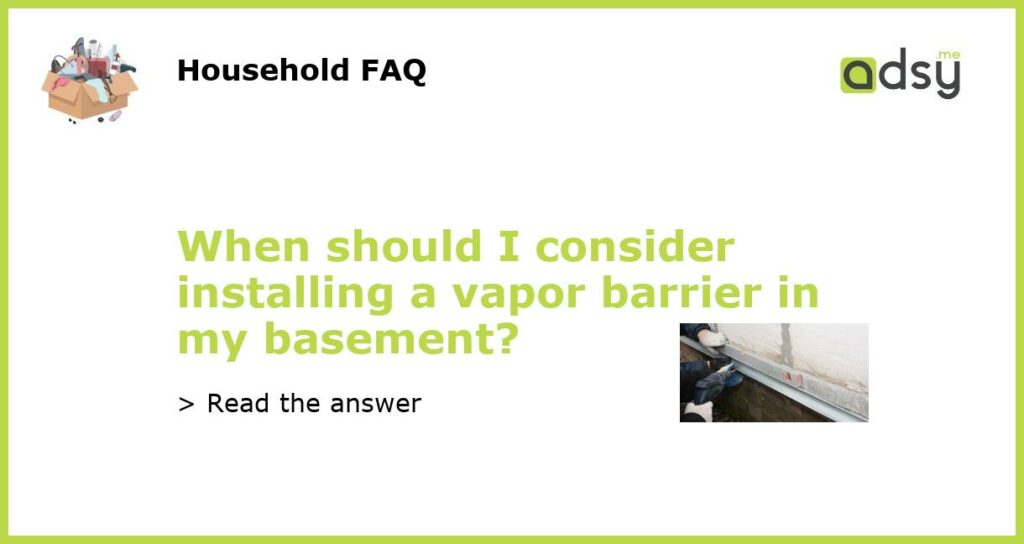What is a Vapor Barrier?
A vapor barrier is a layer of material that is installed in the basement walls and floors to prevent moisture and water vapor from seeping into the space. It acts as a barrier between the basement and the ground outside, preventing the build-up of moisture that can lead to mold, mildew, and other moisture-related issues.
Signs that a Vapor Barrier is Needed
While a vapor barrier is not always necessary in every basement, there are certain signs that indicate it may be needed. Here are some signs to look out for:
- High Humidity: If you notice that the humidity levels in your basement are consistently high, this is a clear indication of excess moisture in the space. Installing a vapor barrier can help control the humidity and prevent further moisture-related issues.
- Musty Odor: A musty or moldy smell in your basement is a sign of excess moisture. This can be caused by water seeping through the walls or floors, and a vapor barrier can help prevent this moisture from entering the space.
- Water Stains: If you notice water stains or discoloration on the walls or floors of your basement, this is a clear indication of water intrusion. A vapor barrier can help minimize water penetration and prevent further damage.
Benefits of Installing a Vapor Barrier
There are several benefits to installing a vapor barrier in your basement:
- Mold Prevention: Mold thrives in damp and humid environments, and a vapor barrier helps prevent the conditions that are conducive to mold growth. By eliminating excess moisture, you can significantly reduce the risk of mold and protect your health.
- Improved Air Quality: Excess moisture in the basement can lead to poor air quality, as mold spores and other contaminants can be released into the air. Installing a vapor barrier helps maintain a healthier indoor environment by reducing the presence of these pollutants.
- Protection for Stored Items: If you use your basement for storage, a vapor barrier provides added protection for your belongings. Moisture can cause damage to items such as furniture, documents, and electronics, and a vapor barrier helps prevent this damage by keeping the space dry.
- Energy Efficiency: A vapor barrier can also help improve the energy efficiency of your home. By reducing moisture levels in the basement, you can create a more stable and consistent temperature throughout your home, reducing the strain on your HVAC system and potentially lowering your energy bills.
When to Consult a Professional
While installing a vapor barrier can be a DIY project for some homeowners, there are cases where it is best to consult a professional:
- Severe Water Intrusion: If you have significant water intrusion in your basement, a vapor barrier alone may not be enough to solve the problem. It is important to identify and address the underlying cause of the water intrusion before installing a vapor barrier.
- Foundation Issues: If you have noticed cracks or other signs of foundation issues in your basement, it is important to address these issues before installing a vapor barrier. A professional can assess the extent of the damage and recommend the appropriate repairs.
- Complex Layout: If your basement has a complex layout with multiple obstructions such as pipes, ductwork, or electrical wiring, it may be best to hire a professional to ensure the vapor barrier is installed correctly and covers all areas of the space.
Installing a vapor barrier in your basement can help prevent moisture-related issues and improve the overall health and comfort of your home. By paying attention to the signs of excess moisture and consulting a professional when necessary, you can create a dry and healthy basement environment.

